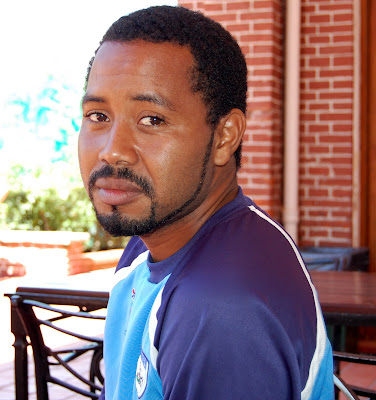 |
| Inside the El Cilindro de Avellaneda (Racing's home ground) |
Almost thirty years later I can now make a more informed choice. As a child my family trips to Filbert Street and being in awe of Gary Lineker and Peter Shelton, swung it for me. Don’t get me wrong, I love Leicester City but it has been hard work.
There are twenty teams in the Argentine Premier A of which a ridiculous thirteen teams are based in Buenos Aires. I decided to take seven different factors into consideration to make my decision:
1. The commute to the ground
2. Fan reputation
3. Success on the pitch
4. Style of football
5. History
6. How many fellow supporters I know
7. Strip colour
I have never been a sheep, so as seventy per cent of Argentine football fans support Boca Juniors or River Plate, that’s two down and eleven to go. Banfield, Lanus, Velez, Argentinos Juniors and Quilmes play good football but are located in the wild-west, meaning dangerous commutes to games. Teams such as Arsenal and Huracan are doing well at the moment but may not have the resources to stay in Premier A. The last thing I want to do is have the pain of supporting another “Yo Yo” club.
After a month of searching I was left with two clubs from Avellaneda, just fifteen minutes away from San Telmo. The Avellaneda Derby (El Superclasico de Avellaneda) between Racing Club and Independiente is the second biggest derby in Argentina, behind Boca Juniors and River Plate. However, El Superclasico de Avellaneda is regarded as having the fiercest rivalry in the country. Why is it so fierce? Their grounds are situated just three hundred meters apart.
 |
| The grounds of Independiente (left) and Racing (right) in the the surrounding neighbourhoud of Avellaneda |
It’s a tricky decision. I return to the seven factors. Well, styles of football are similar and the commute to the ground is exactly the same. What about history? In 1905, after a successful tour to Argentina by Nottingham Forrest, the president of Independiente was so impressed he changed the clubs colours to match Nottingham Forrest. Independiente have had the same strip and colour ever since. As a Leicester City fan I was confused why any team would want to look like our local rivals Forest? But, I didn't want to let emotion cloud my judgement.
 |
| Independiente fans |
What really sealed the deal was fellow Racing fan Estaban ‘Billy’ MacDermott who is Captain of the Argentine Cricket team. He introduced me to La Academia and I have been smitten ever since. However, there is one issue. The Avellenada neighbourhood is one of the dodgiest barrios in Buenos Aires and it is always an experience getting to the ground. Here’s just one example.
 |
| Me with MCC young cricketers Paul Muchall and Tom Lewis at Racing |
There was no sign of Billy and above the din of the crowd there were several loud cracking noises. All the cars heading to the game started reversing down the road at great speed with several passengers motioning to the sky with their middle and index fingers together.
 |
| Esteban 'Billy' MacDermott celebrating a goal at Racing |
I think it must have been at this moment that Billy decided he needed danger money for these heroic acts. He has now decided to become a football guide when he is not doing his day job.
Esteban ‘Billy’ MacDermott - the best football guide in the world (gun war is not guaranteed).
His website is below where you can see the passion of the fans.






































